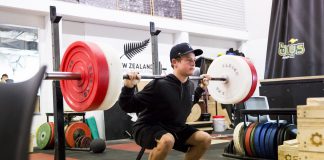Sporting success relies on three important qualities.
The first is speed of implementation. In the heat of the battle, acting quickly, almost without thinking, can be the difference. Because if you’re not fast, you’re food. The second is adaptability. Never in sport will you face exactly the same problem, so you need to be really good at adjusting to new conditions. And third is resiliency. Making a mistake, or a bad decision, is commonplace in sport, so the capacity to recover quickly from disappointment with minimal effect on your game is critical.
To develop these competencies, athletes must spend time playing the game. As Theodore Roosevelt famously said, “The credit belongs to the man who errs, who comes up short again and again, because there is no effort without error and shortcoming; but who actually strives to do the deeds; who knows great enthusiasms, and great devotions.”
While performing is important, so too is quality preparation. The type of practice, and the way it is structured, including a deep appreciation for the fundamentals, matters.
For instance, in mathematics, a sound understanding of multiplication is required before higher operations like division, fractions and algebra can be mastered. And in literacy, exposure to a variety of reading material increases your ability to write with clarity and expression.
The same goes for sport. Advanced athletic capacities, like speed, burn in the fire of fundamental skills, such as coordinated movement and strength. And it’s not just physical competences. Your ability to perform under pressure starts with self-awareness and the ability to regulate your emotions.
However, despite the importance of the fundamentals in sport, very little time is spent developing them. Instead, we go straight to the advanced skills. The sport-specific.
Perhaps the connection is unclear. Or perhaps we’re living in a culture of immediacy, where playing the short-game is the most effective way to make the team. Or winning on Saturday.
Regardless, although going straight to the specific or rote learning the material can work, although it can get you ahead momentarily, when the test changes, or when the demand goes up and you have to adapt and execute quickly, it’s a mastery of the fundamentals that will have you performing at your best consistently.




































